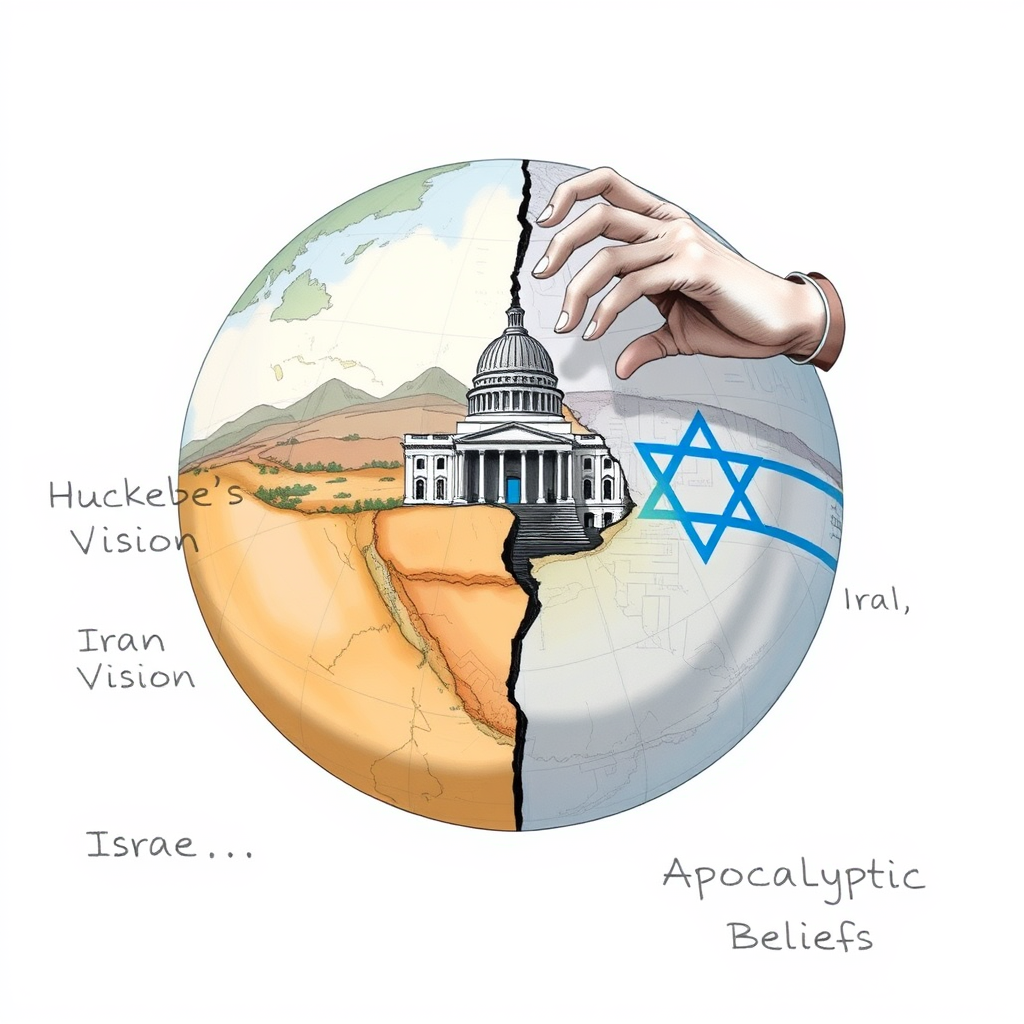Huckabee’s Vision Fuels Trump Toward War With Iran

A recently revealed text message exchange and commentary from columnist Etan Nechin suggest a potent religious undercurrent driving escalating tensions with Iran. Mike Huckabee, former presidential candidate, shared a text he sent to Donald Trump urging military action against Iran. Nechin, writing in Haaretz, argues this exchange, coupled with the rhetoric of the U.S. ambassador to Israel, exposes a dangerous alignment of Christian Zionist beliefs and aggressive foreign policy.
The ambassador, according to Nechin, explicitly framed a potential military conflict as divinely ordained, claiming Trump was spared an assassination attempt to fulfill a historic destiny. This language, Nechin contends, isn’t strategic advice but the culmination of decades of evangelical political maneuvering centered on Israel and a growing messianic strain within Israeli politics itself.
Nechin highlights Huckabee’s adherence to Dispensationalist theology – a belief system that views modern Israel as central to biblical prophecy and deserving of unwavering support until the end of time. He points to a speech given by the ambassador in Jerusalem, where he declared his role as a representative of both the U.S. government and Jesus Christ, as evidence of this deeply held conviction.
The columnist warns that Israel’s increasingly assertive actions against Iran, coupled with open discussion of regime change in Tehran, are fueled by this religious extremism present in both Jerusalem and Washington. He argues that the invocation of defending democracy rings hollow when emanating from leaders seemingly intent on imposing their own religious vision. The rhetoric, Nechin asserts, simply replaces one form of theocracy with another, cloaked in the language of “Judeo-Christian values” and Western ideals.
Nechin further explains that Jewish religious Zionists have increasingly intertwined religion and nationalism, viewing Israel as a vehicle for redemption. This perspective, he argues, aligns with Huckabee’s apparent support for the destruction of the Al-Aqsa Mosque to make way for a Third Temple – a development they believe will herald the arrival of the Messiah.
Ultimately, Nechin concludes that the U.S. has abandoned any pretense of being an impartial mediator. Instead, it is becoming the political arm of a Christian apocalyptic vision with Israel at its core. The columnist paints a grim picture, suggesting this conflict is viewed as a “holy battleground” where the lives of Israelis and Iranians are considered a justifiable cost in pursuit of a perceived “kingdom of heaven on earth.”
This analysis raises serious concerns about the influence of religious ideology on foreign policy decision-making. While faith undoubtedly plays a role in the lives of many individuals, its overt integration into strategic planning, particularly when coupled with apocalyptic beliefs, presents a significant and potentially destabilizing risk. The situation demands critical scrutiny and a renewed focus on diplomacy grounded in pragmatic interests rather than religious conviction.